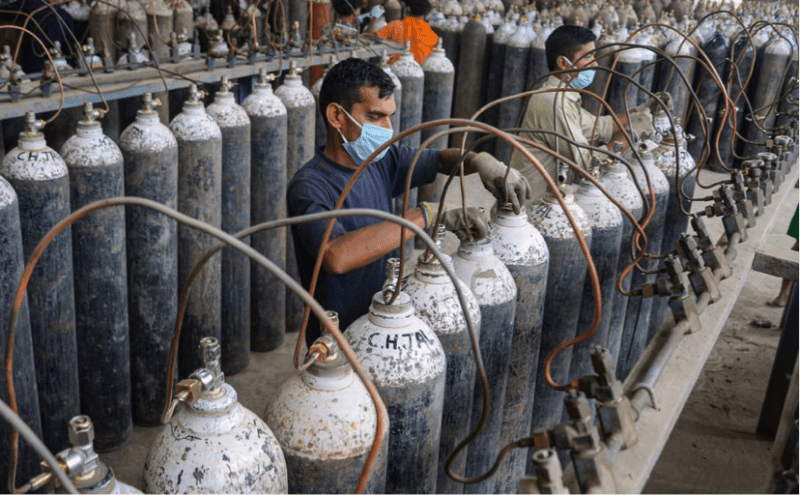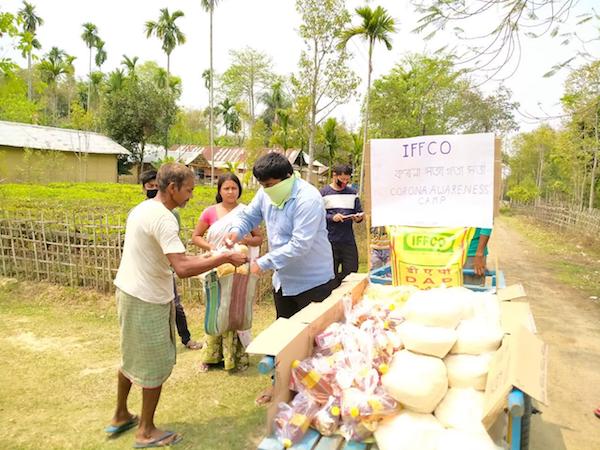
India experienced an unprecedented surge in COVID-19 infections and deaths during the second wave of infection, making it the worst affected country in the world.
Cooperatives and their members have not been immune to the impact of the pandemic. We lost stalwarts in the field; the health, lives and livelihoods of members and their families were affected; and cooperative businesses were disrupted. Even during these dire times, cooperatives showed their resilience and came together to support members, community and the healthcare system.

India faced an acute shortage of oxygen supply for COVID-19-affected patients, bringing the healthcare system to the verge of collapse. Many cooperatives in the country supported oxygen production and distribution. The Indian Farmers Fertilizer Cooperative (IFFCO) built four plants in Kalol (Gujarat), Aonla and Phulpur (Uttar Pradesh) and Paradeep (Odisha) at a cost of INR 30 crore (£2.9m) to supply oxygen to hospitals for free. The Krishak Bharati Cooperative Ltd (Kribhco) set up two new oxygen manufacturing plants in Surat (Gujarat) and Shahajahanpur (Uttar Pradesh). 100 jumbo cylinders of oxygen were produced from each plant daily and distributed to the government and private hospitals for free. The Uralungal Labor Contract Cooperative Society (ULCCS) translocated an entire Oxygen Plant from a factory to the hospital site at Kozhikode Medical College to meet the increasing demand for oxygen for patients. To meet the demand in Gujarat, Amul and many other dairy cooperatives came forward to set up oxygen facilities in their respective districts.
The National Cooperative Union of India (NCUI) used its own resources and raised funds to carry out relief activities through their field offices spread across the country. VAMNICOM, a cooperative management institution in Pune (Maharashtra), organised a vaccination camp for its staff members.

The National Cooperative Development Corporation (NCDC) pledged credit support of INR 10,000 crore (£962m) to cooperatives to plan and set up new hospitals or upgrade existing infrastructure under the Ayushman Sahakar scheme. The scheme was launched by the NCDC in October 2020, in response to the pandemic. NCDC also supported 51 cooperative hospitals in increasing the number of beds. The pandemic has also taken a toll on the mental health and wellbeing of the people; recognising this need, NCDC held a virtual talk on mental health issues for its staff and cooperators in India that was attended by participants from more than 150 cooperatives across the country.
SEWA Cooperative Federation reached out to 1.7 lakh individuals at the grassroots level with COVID-care packages including health and ration kits. Their COVID-19 relief work also enabled and provided income security to 103 SEWA sisters. Related news.
Once again, cooperatives stood the test of time with their values of self-help and caring for others. The principles of Cooperation among Cooperatives and Concern for Community were put into action even more to address the needs of the affected communities. The International Day of Cooperatives with the theme Rebuild Better Together provides an opportunity for the cooperatives to take another step in the direction to build back better and stronger.
Photo credit: Indian Cooperative




